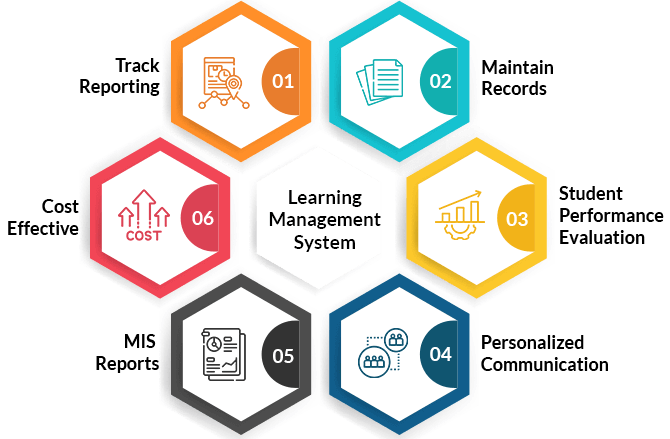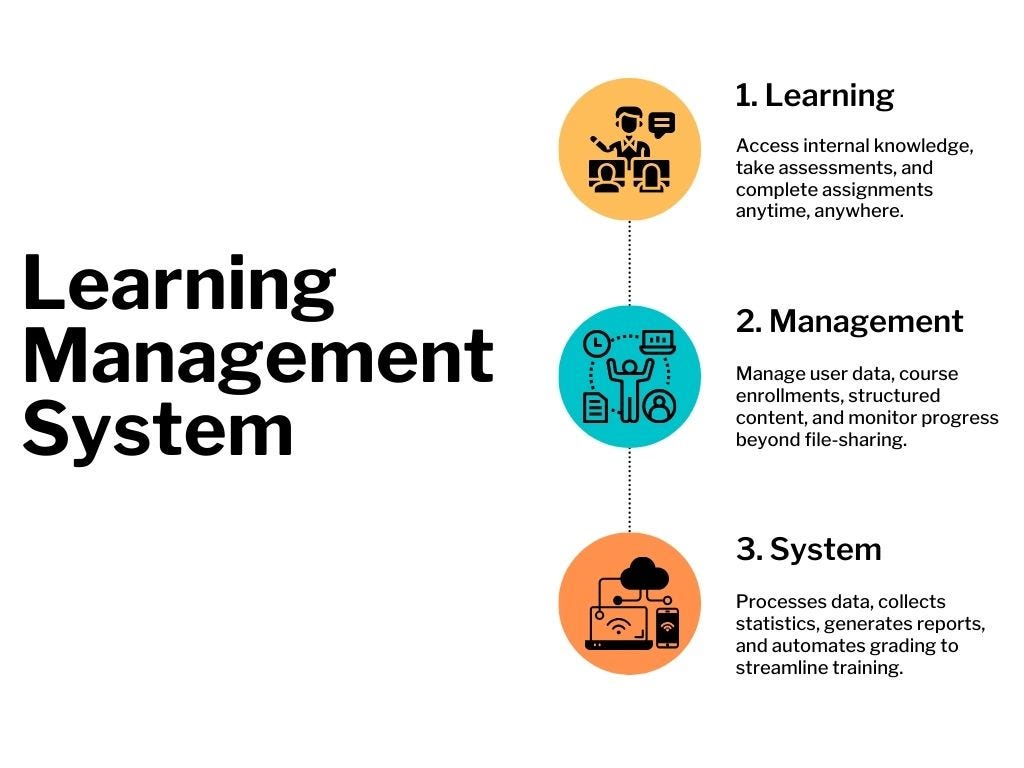Canvas Singapore: Shaping the New Era of Learning in Singapore
Canvas Singapore: Shaping the New Era of Learning in Singapore
Blog Article
Knowing Management Systems: Simplify and Track Your Learning Objectives
In today's instructional landscape, Understanding Administration Solution (LMS) stand apart as critical tools for boosting the effectiveness of discovering processes. By providing a central system that assists in interaction and personalizes instructional experiences, these systems are progressively adopted in both scholastic and expert settings. Their analytical capacities enable thorough tracking of progress versus learning objectives, promoting accountability amongst customers. The inquiry stays: what specific functions can an LMS deal to enhance your understanding journey and guarantee you meet your purposes? Exploring this more reveals essential insights that might change your technique to education and learning.
What Is a Knowing Management System?
A Discovering Monitoring System (LMS) is normally a software program application made to facilitate the administration, paperwork, monitoring, and shipment of educational programs or training programs. At its core, an LMS provides a centralized platform where teachers and students can connect efficiently. This system improves the academic process by enabling trainers to produce and take care of web content, analyze pupil efficiency, and communicate with learners.
LMS services come geared up with different functions, such as program registration, web content monitoring, and reporting devices (lms singapore). They sustain diverse learning layouts, consisting of e-learning, blended understanding, and standard class guideline. Additionally, LMS platforms can integrate multimedia components, such as video clips and interactive quizzes, enhancing the finding out experience
The implementation of an LMS can vary dramatically based on the demands of the company, varying from local business to large universities. This flexibility makes LMS options appropriate for various contexts, consisting of business training, professional growth, and scholastic education. As modern technology proceeds to progress, the role of LMS in fostering reliable knowing environments continues to be progressively essential, giving both trainers and learners with the essential tools to achieve their instructional goals.
Benefits of Making Use Of an LMS
Using a Learning Administration System offers countless advantages that boost both mentor and discovering experiences. Most importantly, an LMS centralizes academic sources, making it much easier for instructors to organize and provide material to trainees. This streamlined access to materials cultivates an effective discovering environment where trainees can involve with coursework at their very own pace.
Furthermore, LMS systems typically come equipped with analytics and reporting functions, permitting instructors to track student development and recognize locations where individuals may require added assistance. This data-driven approach not only notifies guideline but additionally improves general pupil end results by helping with targeted treatments.
In addition, the adaptability of an LMS accommodates various learning styles and preferences, making it possible for the combination of multimedia sources that deal with varied student needs. This adaptability is especially important in today's progressively electronic landscape.
In Addition, an LMS advertises cooperation via conversation online forums and team tasks, motivating peer communication and interaction. Such interaction improves vital thinking and analytical skills, important components of a well-rounded education. Overall, the advantages of making use of an Understanding Monitoring System dramatically add to a much more organized, efficient, and effective instructional experience for both teachers and students.
Secret Attributes to Try To Find
When choosing a Knowing Management System (LMS), numerous crucial functions can considerably impact the performance of the platform. Most importantly, user-friendliness is important. An user-friendly user interface guarantees that both students and try this web-site administrators can browse the system easily, minimizing training time and raising interaction.
Following, durable reporting and analytics abilities are important. These attributes enable companies to track learner progression, analyze training course effectiveness, and identify locations for renovation. Comprehensive understandings read what he said assist in informed decision-making and improve the overall discovering experience.
Furthermore, scalability is a vital factor to consider. The LMS should be able to fit an increasing number of individuals and web content without compromising performance. This versatility makes certain the system can grow alongside the organization.
Combination with existing devices and systems is also important. An LMS that effortlessly gets in touch with various other software, such as HR systems or content authoring tools, improves process effectiveness and information uniformity.
Finally, consider mobile compatibility. A mobile-friendly LMS makes it possible for learners to access materials anytime, anywhere, promoting a more flexible learning environment. lms singapore. By prioritizing these key features, organizations can select an LMS that effectively fulfills their educational objectives
Applying an LMS in Your Operations
Picking the appropriate Discovering Administration System you could look here (LMS) is only the very first step; effective execution within your operations is similarly essential. To guarantee a smooth shift, begin by clearly specifying your understanding goals and preferred outcomes. Entail vital stakeholders early to gather support and address possible worries.
Next, assess existing procedures and determine how the LMS can incorporate effortlessly. This includes drawing up process, identifying which features of the LMS will certainly be used, and assigning functions for content creation, monitoring, and user accessibility. Providing ample training for all individuals is essential; take into consideration tailored sessions to address various ability levels and duties.

Last but not least, preserve open lines of communication throughout the execution process. Regular check-ins with customers will aid determine any obstacles and facilitate recurring support, ensuring that the LMS comes to be an important part of your understanding environment.
Best Practices for Objective Tracking
To successfully track learning objectives within your LMS, it's vital to establish clear metrics and criteria that straighten with your academic goals. Begin by specifying details, quantifiable, possible, appropriate, and time-bound (SMART) objectives for learners. This quality will certainly enable both instructors and pupils to check progress effectively.
Make use of the built-in analytics tools of your LMS to collect data on program conclusion rates, evaluation ratings, and involvement levels. Regularly evaluate these metrics to recognize patterns, locations for improvement, and prospective barricades. Incorporating formative evaluations throughout the understanding process can offer prompt responses, enabling modifications to be made in real-time.
Furthermore, urge self-tracking amongst students by offering them with devices such as progression graphes or control panels. This fosters accountability and motivates them to take ownership of their academic trip.
Last but not least, connect regularly with learners regarding their progress. Scheduled check-ins or comments sessions can help strengthen objectives and motivate discussion regarding difficulties dealt with. By applying these ideal techniques, companies can make sure reliable objective monitoring, eventually improving the general knowing experience and outcomes within the LMS framework.

Verdict
In summary, Knowing Management Systems (LMS) offer as invaluable devices for improving academic experiences by centralizing resources and facilitating communication in between teachers and learners. Inevitably, an LMS is crucial for attaining academic objectives and fostering a helpful discovering setting.
Report this page